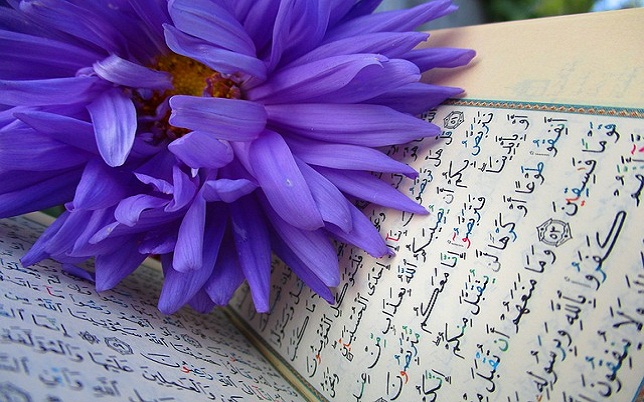A sahabi (Companion of Prophet Muhammad) Salmaan narrates that on the last day of Shabaan (the islamic month just before the month of Ramadan), Prophet Muhammad spoke to us and said:
“O People, there comes to you a great month now, a most blessed month, in which is a night greater in value and goodness than a thousand months. It is a month in which Allah has made fasting fardh (obligatory) by day and has made sunnah (Prophetic Practice) the Taraweeh Salaah (extra prayers) by night.
Whosoever wants to be close to Allah by doing any good deed, for such person shall be the reward like the one who had performed a fardh in any other time and whoever performs a fardh, shall be given the reward of seventy faraaidh (obligations) in any other time.”
This is indeed the month of patience and the reward for true patience is Jannah (paradise).
It is the month of showing kindness to everyone.
It is the month in which a true believer’s rizq (food, money, etc.) are increased. Whosoever feeds a fasting person in order to break the fast at iftaar (sunset), for him there shall be forgiveness of sins and freedom from the fire of Jahannam (hell) and he shall receive the same reward as the fasting person (whom he fed) without the fasting person losing any reward.”
Thereupon we said, “O Messenger of Allah, not all of us can afford to give a fasting person something to break his fast with.”
Prophet Muhammad replied, “Allah gives the same reward to the one who gives a fasting person to break the fast, just one date or a drink of water or a sip of milk.”
Prophet Muhammad said further:
“This is a month, the first of which brings Allah’s mercy, the middle of which brings His forgiveness and the last of which brings freedom from the fire of Jahannam.
Whosoever gives less work to his servants or workers (who are also fasting in this month), Allah will forgive him and free him from the fire of Jahannam.
In this month four things you should perform in great number, two of which shall be to please Allah, while the other two shall be those which you cannot do without.
Those which shall be to please Allah, are that you should recite in great number the Kalimah Tayibbah – Laa ilaaha illallah (i.e. To bear witness that there is no god except Allah) and to recite istighfaar (beg Allah’s forgiveness with astaghfirullah) and as for those which you cannot do without, you should beg of Allah for entrance into Jannah and ask protection in Him from Jahannam.
And whoever gives a fasting person water to drink, Allah shall grant him to drink from my fountain, such a drink, after which that person shall never feel thirsty again until he enters Jannah.” (Reported by Ibn Khuzaimah in his ‘Saheeh’.)
Contents
Explanation of Prophet’s Lecture on Ramadan
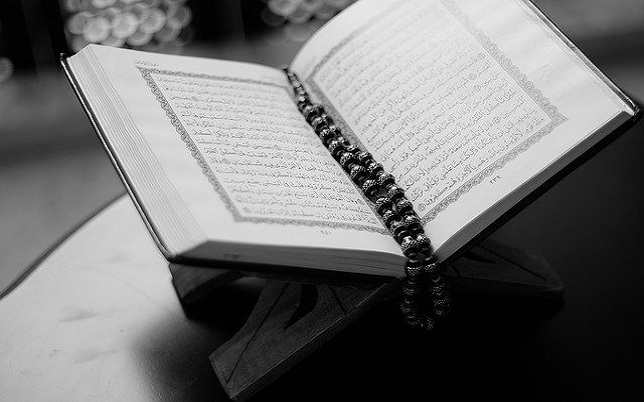
Prophet Muhammad gave this lecture at the end of Shabaan, because he wanted to show the great importance of Ramadan so that we do not allow one second of this month to go to waste.
Fasting has been made fardh by Allah who has also made sunnah the Taraweeh Salaah by night.
From this Hadeeth we learn that the command for Taraweeh Salaah too comes from Allah Himself. Besides this, in all the Hadith where Prophet Muhammad says, I have made it Sunnah is to stress its importance. All the Ulama’ are agreed upon the fact that Taraweeh is Sunnah. Moulana Shah Abdullah Dehlawi in his book, ‘Maa Thabata Bis Sunnah’, states that if the people of any town do not perform Taraweeh Salaah, the Muslim ruler should make them do so by force.
A Common Misunderstanding of Muslims
Many people say that one can listen to the full Quran being read in a certain Mosque in eight or ten nights and then stop performing Taraweeh with jamaat (congregational prayers) as the sunnah will have been fulfilled. This is wrong, by doing this only one sunnah will be fulfilled and the other lost.
We should remember that there are two separate sunnats. Firstly, it is sunnah to hear the full Quran being read in the Taraweeh in Ramadan. Secondly, it is sunnah to perform Taraweeh with jamaat for men in the Mosque throughout Ramadan. Females should perform their Taraweeh at home.
Another point that we learn in the Hadeeth is that Prophet Muhammad told us that any nafil (additional worship) done in Ramadan is rewarded as much as a fardh in normal times and a fardh done in Ramadan has the reward of seventy fardh at other times.
Faults of Muslims in Ramadan
Is our ibaadah or worship in Ramadan important to us? How many nafil do we perform?
We see how many people, who after having eaten sehri (pre-dawn meal), go back to bed without performing the Fajr Salaah. Many perform it, but not with jamaat. Someone might think that we give thanks to Allah for the food we had eaten for sehri by not performing the most important fardh or by not performing it with jamaat. Such a Salaah is not complete.
Prophet Muhammad said: “There is no Salaah for those near the Mosque except in the Mosque.” It means that there is no reward for Salaah, for people who do not perform it with jamaat, without any good reason or excuse.
Similarly, in many cases at the time of iftaar, Maghrib Salaah is missed and many do not come to the Mosque. Some miss the takbeer at the beginning or miss the first rakaat.
Many people hurry to get over the Taraweeh Salaah and even perform the Esha Salaah before the time of Esha starts. (Some do not pay any attention to Salaah even in Ramadan).
That is the condition of our fardh Salaah (obligatory prayers) in Ramadan. Whilst performing one fardh of fasting, three others are destroyed. How often do we see that even the time of Zuhr Salaah passes by because we are asleep, while the time of Asr goes by because we are too busy buying, selling or cooking to prepare for iftaar.
If such is the case with the fardh, then we can imagine how much less importance is given to the nafil actions. One finds that because of sleep, the times of Salaatul Ishraaq (after sunrise) and Salaatud Dhuhaa (before noon) go by.
Then what about Salaatul Awwabeen (just after Maghrib)? Here we find ourselves busy with iftaar and when thinking about Taraweeh after Esha this Salaah too is neglected.
Further we find that for Salaatut Tahajjud the time is the same as that for sehri with the result that this too goes by. One may make a thousand excuses for not finding time for these nafil (extra prayers). These are all excuses for not performing these Salaah.
The Strong Link of Ramadan with Quran
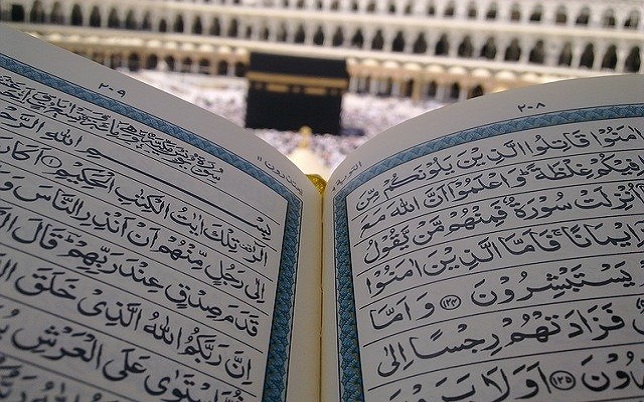
There is very strong link between Ramadan and the Tilaawat (Recitation) of the Quran. Almost all great holy books of Allah were sent down in this month. Similarly, in this month the Quran was brought down from the ‘lowhul mahfoozh’ (preserved tablet) to the ‘samaaud dunyaa’ (Earthly sky), from where it was revealed bit by bit to Prophet Muhammad in a period of twenty three years.
There is a great connection between the Quran and the month of Ramadan. For this reason, as much Tilaawat of the Quran as possible should be made during this month. Such was the habit of our pious people of the past.
Angel Jibraeel used to recite the whole Quran to Prophet Muhammad in the month of Ramadan. In some reports it is stated that Prophet Muhammad used to recite and Jibraeel used to listen.
So Muslims should recite the Quran as much as possible during Ramadan. Whatever time remains thereafter should not be wasted.
4 Special Acts in Ramadan
Prophet Muhammad drew our attention to four things and advised that we should practice them as much as possible. They are:
- The recitation of Kalimah Tayyibah
- Istighfaar (Asking forgiveness)
- Begging for Jannah from Allah and,
- Asking safety from Jahannam.
Therefore, it must be regarded an honour to spend as much time as possible reciting these. This will be the true appreciation of the teachings of Prophet Muhammad. What is so difficult about keeping the tongue busy with the recitation of Durood or ‘Laa Ilaha illallah’ while being engaged in our daily works?
Ramadan is the Month of Patience
In the same Hadeeth, Prophet Muhammad said a few more things; Ramadan is the month of patience.
So if great difficulty is experienced in fasting, one should bear it with patience. One should not complain as people are fond of doing during hot days.
If by chance sehri is missed then too one should not complain.
Similarly, should any difficulty or trial be experienced, one should bear it with patience; otherwise, these deeds may possibly be empty of barakah (blessings).
Ramadan is the Month of Kindness for the Poor & Unfortunate
The Hadeeth also says that it is the month of sympathy and kindness, especially for the poor and needy.
Sympathy should be of a practical nature. When ten things are placed before us for iftaar, at least two or four of them should be set aside for the poor and needy.
They should be treated more favourably, if not then at least equally and should certainly be remembered.
The Sahaabah (companions of Prophet Muhammad) were living examples in showing sympathy for the poor, it is our duty to follow or at least try to follow them.
In the matter of sacrifice and sympathy, only the brave can follow the examples of Sahaabah. There are many instances which will leave one in amazement if mentioned.
Amazing Sympathy & Sacrifice of Sahaba
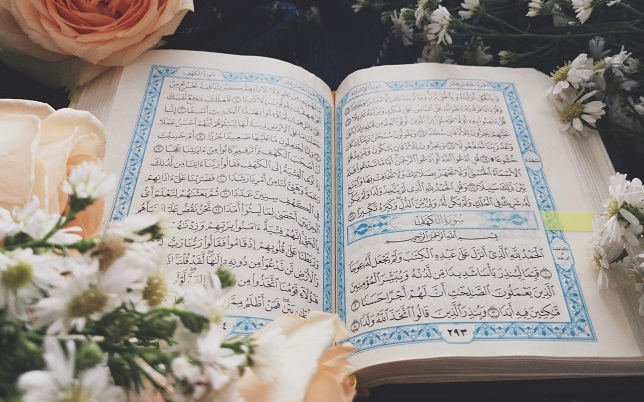
Let us see the following example:
Abu Jahm narrates, during the battle of Yarmouk, he went in search of his cousin, taking with him a water bag to give him to drink and also wash his wounds if he was found alive or wounded. He found him lying among the wounded.
When I asked him whether he wanted some water, he said ‘Yes’. At that moment someone near him moaned. My cousin pointed to that person indicating that I should first give him the water.
I went to him and found that he too needed water, but just as I was about to give him the water, a third person groaned near him. The second one pointed to this third person meaning that I should give the third one to drink first.
When I went to the third person but before he could drink, I found out that he had passed away, I then returned to the second one only to find that he too had passed away. When I came back to my cousin, he too had become a shaheed (Martyr in the cause of Allah).
This is the type of caring character our Sahaabah had. They preferred to die thirsty rather than to drink before a Muslim brother.
May Allah be pleased with them all and grant us ability to follow in their footsteps. Aameen
Amazing Virtues of Ramadan
Another Hadeeth says that whoever feeds the hungry, clothes the naked and gives shelter to the traveller, Allah shall save him from the terrors of Qiyaamah.
Further, Prophet Muhammad mentioned the virtue of feeding a fasting person at the time of breaking the fast.
In one Hadeeth it is reported that one who feeds a person out of his Halaal (permissible) earnings to break the fast, the Malaaikah (Angels) grant mercy upon him during the nights of Ramadan, and Angel Jibraeel shakes hands with him on Laylatul Qadr. The sign of this is that his heart becomes soft and tears flow from his eyes.
Hammad bin Salamah, who was a very famous Muhaddith (Hadith Expert) used to feed fifty people every day at iftaar during Ramadan.
3 Sections of Ramadan
Thereafter, the Hadeeth of Prophet Muhammad called the first section (i.e. first 10 days) of Ramadan the coming of mercy, which means that Allah’s favour is with the believers. Those who are thankful to Allah for His bounties will receive even more. The Quran says:
“If you are thankful, I will surely grant you more.”
During the second section (i.e. the second 10 days) of Ramadan, forgiveness begins to come down as a reward for fasting during the first section.
The last section (i.e. the last 10 days) of Ramadan brings protection from entrance into Jahannam.
Some righteous Ulema (Islamic Scholars) have said that Ramadan has been divided into three sections because people are normally of three different kinds. Firstly, there are those who have no sins. For them Allah’s mercy and Bounties come from the very beginning of Ramadan.
Secondly, there are those whose sins are not too heavy, for them forgiveness comes after one third of Ramadan has passed.
Thirdly, there are the real sinners. For them forgiveness comes after having fasted most of Ramadan. Those who received Allah mercy right at the beginning are the very fortunate ones because of the great amount of mercy they have received. (And Allah knows best).
Be Merciful to your Servants in Ramadan
Another point mentioned in the Hadith is that masters should be merciful to their servants in Ramadan because, after all, they too are fasting. Unnecessary hard work or too much of it will be difficult for them. An extra worker should be hired when the work is too much. That of course, only applies when the servant himself fasts; otherwise there is no difference for them between Ramadan and any other month.
Recitation of Kalimah Tayyibah in Ramadan
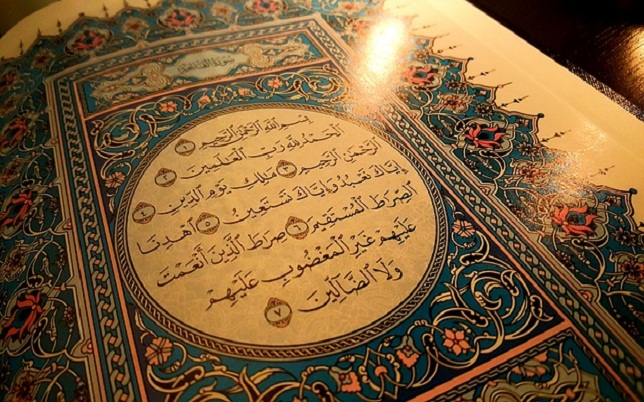
Lastly, Prophet Muhammad encouraged four things in the Hadeeth that should be repeated constantly. Firstly, the recitation of Kalimah Tayyibah, which in the Ahaadeeth is called the highest form of zikr (Remembrance of Allah).
In Mishkat, Abu Saeed Khudri reports:
Once Prophet Moosa begged of Allah to grant him a special zikr by which he can remember Allah and also (by which he could) ask Him.
Allah then told him to recite the Kalimah Tayyibah.
Sayyidina Moosa said, “O Allah! this is a zikr recited by all your servants, I wish for a special zikr.”
Allah replied, “O Moosa, if the seven heavens, the earth and all its occupants including the Malaaikah (Angels) but excluding Myself (i.e. excluding Allah Himself) are placed on one side of a scale and this Kalimah on the other, then this Kalimah will weigh heavier than everything else.”
In another Hadeeth it is stated, Should anyone sincerely recite this Kalimah, the doors of Jannah open up for him immediately and nothing can stop him from reaching Allah’s arsh (throne). The only condition is that the reciter should stay away from major sins.
The Kalimah Tayyibah is the most excellent form of zikr. Allah has made it for everybody, so that none is deprived of it. Therefore, if any person is deprived of it, it is his own fault.
Doing Plenty of Istighfaar in Ramadan
The second thing which should be recited plentifully is istighfaar.
The Hadeeths mentions many rewards of istighfaar. In one Hadeeth we read, “Whoever makes much Istighfaar, Allah opens a way out for him from all problems and removes all sadness from him. He also receives rizq (food, money etc.) from unexpected places.”
In another Hadeeth, Prophet Muhammad said that, “Every man is a sinner, but the best among the sinners are those who repent and ask for forgiveness.”
In one Hadeeth it is mentioned that, “When a man commits a sin, a black spot forms on his heart, but when he asks for forgiveness, it is washed away , if not, the black spot remains”.
Thereafter, Prophet Muhammad commanded us to beg two things which we cannot do without, firstly to beg Allah for entrance into Jannah and secondly to ask for protection in Him from Jahannam.
May Allah grant us this good fortune. (Aameen)

